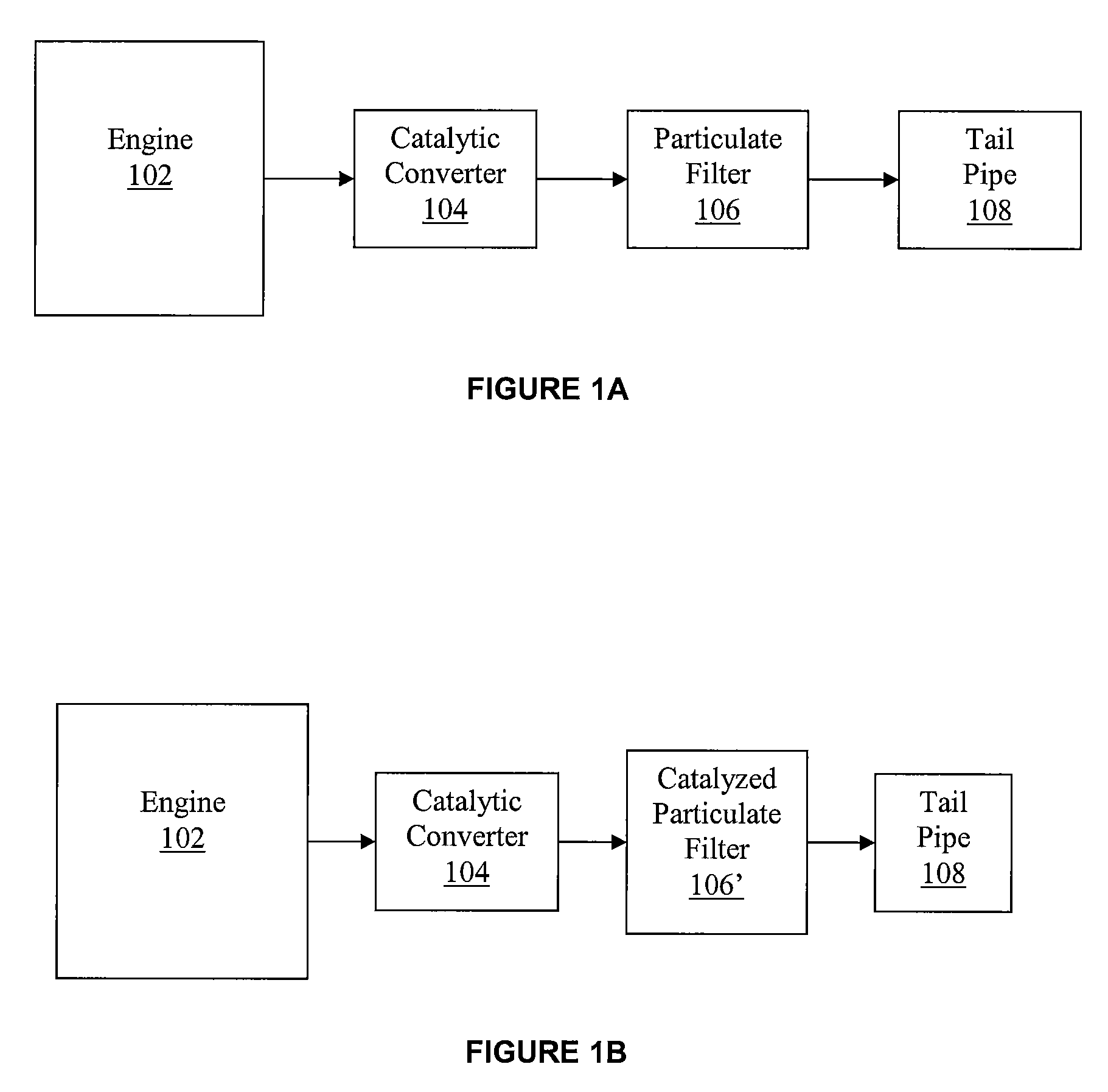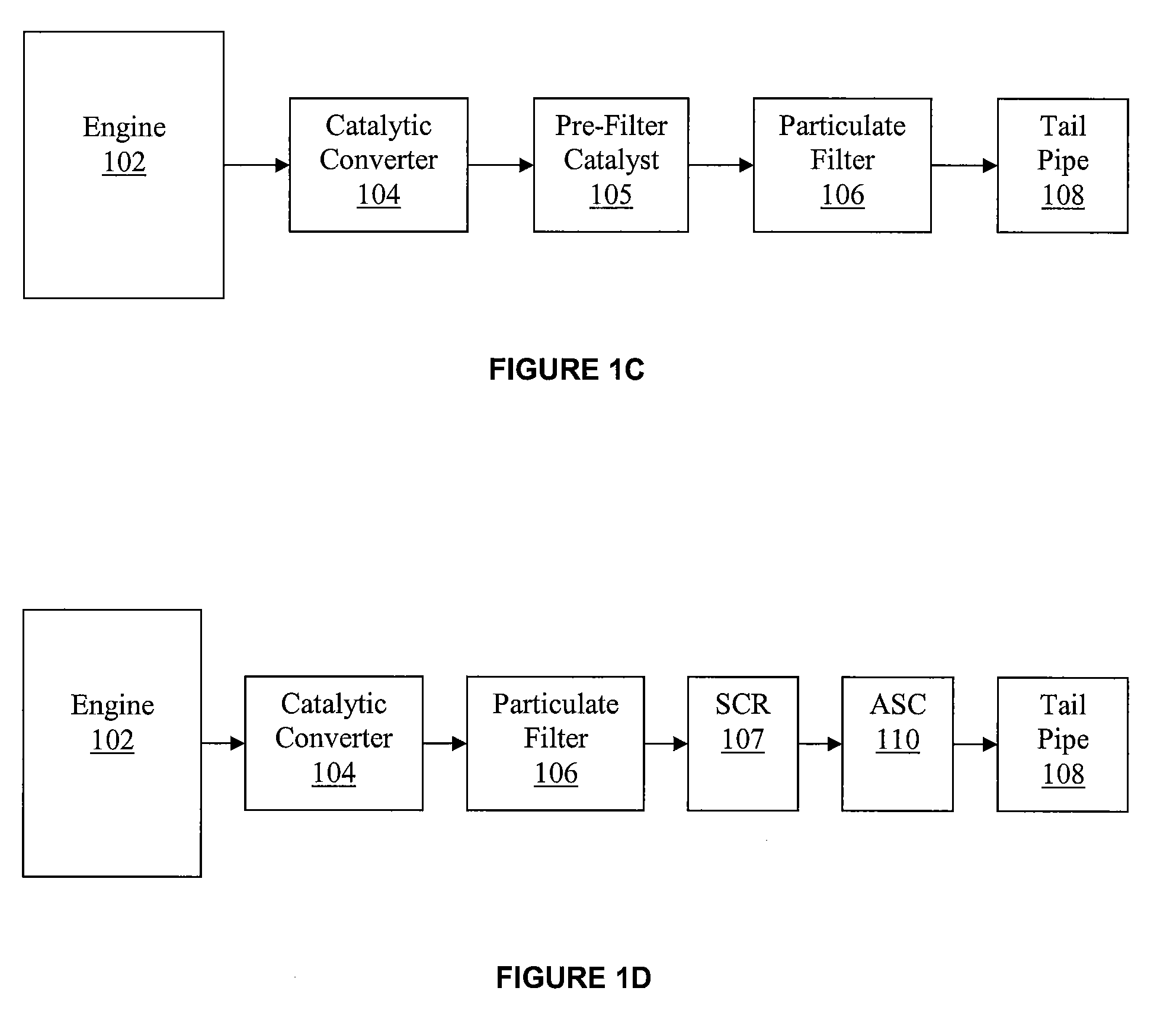Platinum-bismuth catalysts for treating engine exhaust
a technology of catalysts and engine exhaust, which is applied in the direction of metal/metal-oxide/metal-hydroxide catalysts, machines/engines, arsenic compounds, etc., can solve the problems that many industrial products such as fuels, lubricants, drugs, etc., cannot be manufactured without the use of catalysts
- Summary
- Abstract
- Description
- Claims
- Application Information
AI Technical Summary
Benefits of technology
Problems solved by technology
Method used
Image
Examples
example 1
Pt (3%) Bi (None)
[0050]To 10 L of deionized H2O was added 2000 g of La-doped alumina (having a BET surface area of 200 m2 g−1) followed by stirring for 30 minutes at room temperature. To this slurry was added 436.1 g of Pt(NO3)2 solution (13.76% Pt(NO3)2 by weight), followed by stirring at room temperature for 60 minutes. Acrylic acid (750 mL, 99% purity) was then added into the system over 12 minutes and the resulting mixture was allowed to continue stirring at room temperature for 2 hours. The solid La-doped alumina supported Pt catalyst was separated from the liquid via filtration, dried at 120° C. for 2 hours, ground into a fine powder, and calcined in air for 2 hours at a temperature of 500° C. (heated at 8° C. min−1).
example 2
Pt (3%) Bi (8%)
[0051]To 1900 g of the La-doped alumina supported Pt catalyst prepared according to Example 1 was added a solution / slurry of bismuth citrate in deionized water (290 g bismuth citrate in 2.2 L H2O). The resulting paste was mixed at room temperature for 15 minutes using a high-shear mixer, dried at 120° C. for 2 hours, ground into a fine powder, and calcined in air for 2 hours at a temperature of 500° C. providing the final La-doped supported PtBi catalyst.
example 3
Pt (3%) Bi (4%)
[0052]To 2 g of the La-doped alumina supported Pt catalyst prepared according to Example 1 was added a solution of bismuth acetate (0.148 g bismuth acetate in 4 mL H2O and 1 mL glacial acetic acid). The resulting paste was mechanically mixed at room temperature for 60 minutes, dried at 13020 C. for 2.5 hours, ground into a fine powder, and calcined in air for 1 hour at a temperature of 500° C. providing the final La-doped supported PtBi catalyst.
PUM
| Property | Measurement | Unit |
|---|---|---|
| size | aaaaa | aaaaa |
| size | aaaaa | aaaaa |
| temperature | aaaaa | aaaaa |
Abstract
Description
Claims
Application Information
 Login to View More
Login to View More - R&D
- Intellectual Property
- Life Sciences
- Materials
- Tech Scout
- Unparalleled Data Quality
- Higher Quality Content
- 60% Fewer Hallucinations
Browse by: Latest US Patents, China's latest patents, Technical Efficacy Thesaurus, Application Domain, Technology Topic, Popular Technical Reports.
© 2025 PatSnap. All rights reserved.Legal|Privacy policy|Modern Slavery Act Transparency Statement|Sitemap|About US| Contact US: help@patsnap.com



